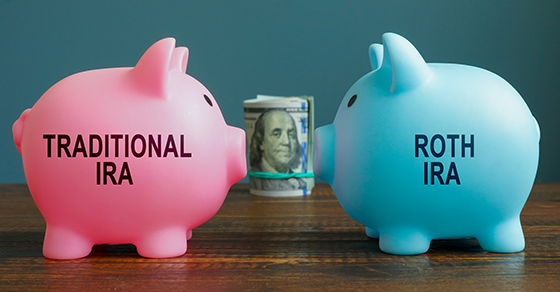Weekly Tax Brief
Is your corporation eligible for the dividends-received deduction?
- Details
- Published: 15 June 2022 15 June 2022

There’s a valuable tax deduction available to a C corporation when it receives dividends. The “dividends-received deduction” is designed to reduce or eliminate an extra level of tax on dividends received by a corporation. As a result, a corporation will typically be taxed at a lower rate on dividends than on capital gains.
Ordinarily, the deduction is 50% of the dividend, with the result that only 50% of the dividend received is effectively subject to tax. For example, if your corporation receives a $1,000 dividend, it includes $1,000 in income, but after the $500 dividends-received deduction, its taxable income from the dividend is only $500.
The deductible percentage of a dividend will increase to 65% of the dividend if your corporation owns 20% or more (by vote and value) of the payor’s stock. If the payor is a member of an affiliated group (based on an 80% ownership test), dividends from another group member are 100% deductible. (If one or more members of the group is subject to foreign taxes, a special rule requiring consistency of the treatment of foreign taxes applies.) In applying the 20% and 80% ownership percentages, preferred stock isn’t counted if it’s limited and preferred as to dividends, doesn’t participate in corporate growth to a significant extent, isn’t convertible and has limited redemption and liquidation rights.
If a dividend on stock that hasn’t been held for more than two years is an “extraordinary dividend,” the basis of the stock on which the dividend is paid is reduced by the amount that effectively goes untaxed because of the dividends-received deduction. If the reduction exceeds the basis of the stock, gain is recognized. (A dividend paid on common stock will be an extraordinary dividend if it exceeds 10% of the stock’s basis, treating dividends with ex-dividend dates within the same 85-day period as one.)
Holding period requirement
The dividends-received deduction is only available if the recipient satisfies a minimum holding period requirement. In general, this requires the recipient to own the stock for at least 46 days during the 91-day period beginning 45 days before the ex-dividend date. For dividends on preferred stock attributable to a period of more than 366 days, the required holding period is extended to 91 days during the 181-day period beginning 90 days before the ex-dividend date. Under certain circumstances, periods during which the taxpayer has hedged its risk of loss on the stock are not counted.
Taxable income limitation
The dividends-received deduction is limited to a certain percentage of income. If your corporation owns less than 20% of the paying corporation, the deduction is limited to 50% of your corporation’s taxable income (modified to exclude certain items). However, if allowing the full (50%) dividends-received deduction without the taxable income limitation would result in (or increase) a net operating loss deduction for the year, the limitation doesn’t apply.
Illustrative example
Let’s say your corporation receives $50,000 in dividends from a less-than-20% owned corporation and has a $10,000 loss from its regular operations. If there were no loss, the dividends-received deduction would be $25,000 (50% of $50,000). However, since taxable income used in computing the dividends-received deduction is $40,000, the deduction is limited to $20,000 (50% of $40,000).
Other rules apply if the dividend payor is a foreign corporation. Contact us if you’d like to discuss how to take advantage of this deduction.
© 2022
Social Security benefits: Do you have to pay tax on them?
- Details
- Published: 09 June 2022 09 June 2022

Some people who begin claiming Social Security benefits are surprised to find out they’re taxed by the federal government on the amounts they receive. If you’re wondering whether you’ll be taxed on your Social Security benefits, the answer is: It depends.
The taxation of Social Security benefits depends on your other income. If your income is high enough, between 50% and 85% of your benefits could be taxed. (This doesn’t mean you pay 85% of your benefits back to the federal government in taxes. It merely means that you’d include 85% of them in your income subject to your regular tax rates.)
Figuring your income
To determine how much of your benefits are taxed, first determine your other income, including certain items otherwise excluded for tax purposes (for example, tax-exempt interest). Add to that the income of your spouse if you file a joint tax return. To this, add half of the Social Security benefits you and your spouse received during the year. The figure you come up with is your total income plus half of your benefits. Now apply the following rules:
- If your income plus half your benefits isn’t above $32,000 ($25,000 for single taxpayers), none of your benefits are taxed.
- If your income plus half your benefits exceeds $32,000 but isn’t more than $44,000, you will be taxed on one half of the excess over $32,000, or one half of the benefits, whichever is lower.
An example to illustrate
Let’s say you and your spouse have $20,000 in taxable dividends, $2,400 of tax-exempt interest and combined Social Security benefits of $21,000. So, your income plus half your benefits is $32,900 ($20,000 + $2,400 +½ of $21,000). You must include $450 of the benefits in gross income (½ ($32,900 − $32,000)). (If your combined Social Security benefits were $5,000, and your income plus half your benefits were $40,000, you would include $2,500 of the benefits in income: ½ ($40,000 − $32,000) equals $4,000, but half the $5,000 of benefits ($2,500) is lower, and the lower figure is used.)
Note: If you aren’t paying tax on your Social Security benefits now because your income is below the floor, or you’re paying tax on only 50% of those benefits, an unplanned increase in your income can have a triple tax cost. You’ll have to pay tax on the additional income, you’ll have to pay tax on (or on more of) your Social Security benefits (since the higher your income the more of your Social Security benefits are taxed), and you may get pushed into a higher marginal tax bracket.
For example, this situation might arise if you receive a large distribution from an IRA during the year or you have large capital gains. Careful planning might avoid this negative tax result. You might be able to spread the additional income over more than one year, or liquidate assets other than an IRA account, such as stock showing only a small gain or stock with gain that can be offset by a capital loss on other shares.
If you know your Social Security benefits will be taxed, you can voluntarily arrange to have the tax withheld from the payments by filing a Form W-4V. Otherwise, you may have to make quarterly estimated tax payments. Keep in mind that most states do not tax Social Security benefits, but 12 states do tax them. Contact us for assistance or more information.
© 2022
Help when needed: Apply the research credit against payroll taxes
- Details
- Published: 08 June 2022 08 June 2022

Here’s an interesting option if your small company or start-up business is planning to claim the research tax credit. Subject to limits, you can elect to apply all or some of any research tax credits that you earn against your payroll taxes instead of your income tax. This payroll tax election may influence some businesses to undertake or increase their research activities. On the other hand, if you’re engaged in or are planning to engage in research activities without regard to tax consequences, be aware that some tax relief could be in your future.
Here are some answers to questions about the option.
Why is the election important?
Many new businesses, even if they have some cash flow, or even net positive cash flow and/or a book profit, pay no income taxes and won’t for some time. Therefore, there’s no amount against which business credits, including the research credit, can be applied. On the other hand, a wage-paying business, even a new one, has payroll tax liabilities. The payroll tax election is thus an opportunity to get immediate use out of the research credits that a business earns. Because every dollar of credit-eligible expenditure can result in as much as a 10-cent tax credit, that’s a big help in the start-up phase of a business — the time when help is most needed.
Which businesses are eligible?
To qualify for the election a taxpayer:
- Must have gross receipts for the election year of less than $5 million and
- Be no more than five years past the period for which it had no receipts (the start-up period).
In making these determinations, the only gross receipts that an individual taxpayer takes into account are from his or her businesses. An individual’s salary, investment income or other income aren’t taken into account. Also, note that neither an entity nor an individual can make the election for more than six years in a row.
Are there limits on the election?
Research credits for which a taxpayer makes the payroll tax election can be applied only against the employer’s old-age, survivors and disability liability — the OASDI or Social Security portion of FICA taxes. So the election can’t be used to lower 1) the employer’s liability for the Medicare portion of FICA taxes or 2) any FICA taxes that the employer withholds and remits to the government on behalf of employees.
The amount of research credit for which the election can be made can’t annually exceed $250,000. Note too that an individual or C corporation can make the election only for those research credits which, in the absence of an election, would have to be carried forward. In other words, a C corporation can’t make the election for research credits that the taxpayer can use to reduce current or past income tax liabilities.
The above Q&As just cover the basics about the payroll tax election. And, as you may have already experienced, identifying and substantiating expenses eligible for the research credit itself is a complex area. Contact us for more information about the payroll tax election and the research credit.
© 2022
Is it a good time for a Roth conversion?
- Details
- Published: 02 June 2022 02 June 2022

The downturn in the stock market may have caused the value of your retirement account to decrease. But if you have a traditional IRA, this decline may provide a valuable opportunity: It may allow you to convert your traditional IRA to a Roth IRA at a lower tax cost.
Traditional vs. Roth
Here’s what makes a traditional IRA different from a Roth IRA:
Traditional IRA. Contributions to a traditional IRA may be deductible, depending on your modified adjusted gross income (MAGI) and whether you (or your spouse) participate in a qualified retirement plan, such as a 401(k). Funds in the account can grow tax deferred.
On the downside, you generally must pay income tax on withdrawals. In addition, you’ll face a penalty if you withdraw funds before age 59½ — unless you qualify for a handful of exceptions — and you’ll face an even larger penalty if you don’t take your required minimum distributions (RMDs) after age 72.
Roth IRA. Roth IRA contributions are never deductible. But withdrawals — including earnings — are tax free as long as you’re age 59½ or older and the account has been open at least five years. In addition, you’re allowed to withdraw contributions at any time tax- and penalty-free. You also don’t have to begin taking RMDs after you reach age 72.
However, the ability to contribute to a Roth IRA is subject to limits based on your MAGI. Fortunately, no matter how high your income, you’re eligible to convert a traditional IRA to a Roth. The catch? You’ll have to pay income tax on the amount converted.
Your tax hit may be reduced
This is where the “benefit” of a stock market downturn comes in. If your traditional IRA has lost value, converting to a Roth now rather than later will minimize your tax hit. Plus, you’ll avoid tax on future appreciation when the market goes back up.
It’s important to think through the details before you convert. Here are some of the issues to consider when deciding whether to make a conversion:
Having enough money to pay the tax bill. If you don’t have the cash on hand to cover the taxes owed on the conversion, you may have to dip into your retirement funds. This will erode your nest egg. The more money you convert and the higher your tax bracket, the bigger the tax hit.
Your retirement plans. Your stage of life may also affect your decision. Typically, you wouldn’t convert a traditional IRA to a Roth IRA if you expect to retire soon and start drawing down on the account right away. Usually, the goal is to allow the funds to grow and compound over time without any tax erosion.
Keep in mind that converting a traditional IRA to a Roth isn’t an all-or-nothing deal. You can convert as much or as little of the money from your traditional IRA account as you like. So, you might decide to gradually convert your account to spread out the tax hit over several years.
There are also other issues that need to be considered before executing a Roth IRA conversion. If this sounds like something you’re interested in, contact us to discuss whether a conversion is right for you.
© 2022
Calculating corporate estimated tax
- Details
- Published: 31 May 2022 31 May 2022

The next quarterly estimated tax payment deadline is June 15 for individuals and businesses so it’s a good time to review the rules for computing corporate federal estimated payments. You want your business to pay the minimum amount of estimated taxes without triggering the penalty for underpayment of estimated tax.
Four methods
The required installment of estimated tax that a corporation must pay to avoid a penalty is the lowest amount determined under each of the following four methods:
- Under the current year method, a corporation can avoid the estimated tax underpayment penalty by paying 25% of the tax shown on the current tax year’s return (or, if no return is filed, 25% of the tax for the current year) by each of four installment due dates. The due dates are generally April 15, June 15, September 15 and January 15 of the following year.
- Under the preceding year method, a corporation can avoid the estimated tax underpayment penalty by paying 25% of the tax shown on the return for the preceding tax year by each of four installment due dates. (Note, however, that for 2022, certain corporations can only use the preceding year method to determine their first required installment payment. This restriction is placed on a corporation with taxable income of $1 million or more in any of the last three tax years.) In addition, this method isn’t available to corporations with a tax return that was for less than 12 months or a corporation that didn’t file a preceding tax year return that showed some tax liability.
- Under the annualized income method, a corporation can avoid the estimated tax underpayment penalty if it pays its “annualized tax” in quarterly installments. The annualized tax is computed on the basis of the corporation’s taxable income for the months in the tax year ending before the due date of the installment and assuming income will be received at the same rate over the full year.
- Under the seasonal income method, corporations with recurring seasonal patterns of taxable income can annualize income by assuming income earned in the current year is earned in the same pattern as in preceding years. There’s a somewhat complicated mathematical test that corporations must pass in order to establish that their income is earned seasonally and that they therefore qualify to use this method. If you think your corporation might qualify for this method, don’t hesitate to ask for our assistance in determining if it does.
Also, note that a corporation can switch among the four methods during a given tax year.
We can examine whether your corporation’s estimated tax bill can be reduced. Contact us if you’d like to discuss this matter further.
© 2022
The ins and outs of Series EE savings bond taxation
- Details
- Published: 26 May 2022 26 May 2022

Many people own Series E and Series EE bonds that were bought many years ago. They may rarely look at them or think about them except on occasional trips to a file cabinet or safe deposit box.
One of the main reasons for buying U.S. savings bonds (such as Series EE bonds) is the fact that interest can build up without the need to currently report or pay tax on it. The accrued interest is added to the redemption value of the bond and is paid when the bond is eventually cashed in. Unfortunately, the law doesn’t allow for this tax-free buildup to continue indefinitely. The difference between the bond’s purchase price and its redemption value is taxable interest.
Series EE bonds, which have a maturity period of 30 years, were first offered in January 1980. They replaced the earlier Series E bonds.
Currently, Series EE bonds are only issued electronically. They’re issued at face value, and the face value plus accrued interest is payable at maturity.
Before January 1, 2012, Series EE bonds could be purchased on paper. Those paper bonds were issued at a discount, and their face value is payable at maturity. Owners of paper Series EE bonds can convert them to electronic bonds, posted at their purchase price (with accrued interest).
Here’s an example of how Series EE bonds are taxed. Bonds issued in January 1990 reached final maturity after 30 years, in January of 2020. That means that not only have they stopped earning interest, but all of the accrued and as yet untaxed interest was taxable in 2020.
A $1,000 Series EE bond (paper) bought in January 1990 for $500 was worth about $2,073.60 in January of 2020. It won’t increase in value after that. The entire difference of $1,573.60 ($2,073.60 − $500) was taxable as interest in 2020. This interest is exempt from state and local income taxes.
Note: Using the money from EE bonds for higher education may keep you from paying federal income tax on the interest.
If you own bonds (paper or electronic) that are reaching final maturity this year, action is needed to assure that there’s no loss of interest or unanticipated current tax consequences. Check the issue dates on your bonds. One possible place to reinvest the money is in Series I savings bonds, which are currently attractive due to rising inflation resulting in a higher interest rate.
© 2022
Partners may have to report more income on tax returns than they receive in cash
- Details
- Published: 24 May 2022 24 May 2022

Are you a partner in a business? You may have come across a situation that’s puzzling. In a given year, you may be taxed on more partnership income than was distributed to you from the partnership in which you’re a partner.
Why does this happen? It’s due to the way partnerships and partners are taxed. Unlike C corporations, partnerships aren’t subject to income tax. Instead, each partner is taxed on the partnership’s earnings — whether or not they’re distributed. Similarly, if a partnership has a loss, the loss is passed through to the partners. (However, various rules may prevent a partner from currently using his or her share of a partnership’s loss to offset other income.)
Pass through your share
While a partnership isn’t subject to income tax, it’s treated as a separate entity for purposes of determining its income, gains, losses, deductions and credits. This makes it possible to pass through to partners their share of these items.
An information return must be filed by a partnership. On Schedule K of Form 1065, the partnership separately identifies income, deductions, credits and other items. This is so that each partner can properly treat items that are subject to limits or other rules that could affect their correct treatment at the partner’s level. Examples of such items include capital gains and losses, interest expense on investment debts and charitable contributions. Each partner gets a Schedule K-1 showing his or her share of partnership items.
Basis and distribution rules ensure that partners aren’t taxed twice. A partner’s initial basis in his or her partnership interest (the determination of which varies depending on how the interest was acquired) is increased by his or her share of partnership taxable income. When that income is paid out to partners in cash, they aren’t taxed on the cash if they have sufficient basis. Instead, partners just reduce their basis by the amount of the distribution. If a cash distribution exceeds a partner’s basis, then the excess is taxed to the partner as a gain, which often is a capital gain.
Illustrative example
Two people each contribute $10,000 to form a partnership. The partnership has $80,000 of taxable income in the first year, during which it makes no cash distributions to the two partners. Each of them reports $40,000 of taxable income from the partnership as shown on their K-1s. Each has a starting basis of $10,000, which is increased by $40,000 to $50,000. In the second year, the partnership breaks even (has zero taxable income) and distributes $40,000 to each of the two partners. The cash distributed to them is received tax-free. Each of them, however, must reduce the basis in his or her partnership interest from $50,000 to $10,000.
More rules and limits
The example and details above are an overview and, therefore, don’t cover all the rules. For example, many other events require basis adjustments and there are a host of special rules covering noncash distributions, distributions of securities, liquidating distributions and other matters. Contact us if you’d like to discuss how a partner is taxed.
© 2022
Partners may have to report more income on tax returns than they receive in cash
- Details
- Published: 24 May 2022 24 May 2022

IRA charitable donations: An alternative to taxable required distributions
- Details
- Published: 18 May 2022 18 May 2022

Are you a charitably minded individual who is also taking distributions from a traditional IRA? You may want to consider the tax advantages of making a cash donation to an IRS-approved charity out of your IRA.
When distributions are taken directly out of traditional IRAs, federal income tax of up to 37% in 2022 will have to be paid. State income taxes may also be owed.
Qualified charitable distributions
One popular way to transfer IRA assets to charity is via a tax provision that allows IRA owners who are age 70½ or older to direct up to $100,000 per year of their IRA distributions to charity. These distributions are known as qualified charitable distributions (QCDs). The money given to charity counts toward your required minimum distributions (RMDs) but doesn’t increase your adjusted gross income (AGI) or generate a tax bill.
Keeping the donation out of your AGI may be important for several reasons. Here are some of them:
- It can help you qualify for other tax breaks. For example, having a lower AGI can reduce the threshold for deducting medical expenses, which are only deductible to the extent they exceed 7.5% of AGI.
- You can avoid rules that can cause some or all of your Social Security benefits to be taxed and some or all of your investment income to be hit with the 3.8% net investment income tax.
- It can help you avoid a high-income surcharge for Medicare Part B and Part D premiums, which kick in if AGI is over certain levels.
- The distributions going to the charity won’t be subject to federal estate tax and generally won’t be subject to state death taxes.
Important points: You can’t claim a charitable contribution deduction for a QCD not included in your income. Also keep in mind that the age after which you must begin taking RMDs is 72, but the age you can begin making QCDs is 70½.
To benefit from a QCD for 2022, you must arrange for a distribution to be paid directly from the IRA to a qualified charity by December 31, 2022. You can use QCDs to satisfy all or part of the amount of your RMDs from your IRA. For example, if your 2022 RMDs are $10,000, and you make a $5,000 QCD for 2022, you have to withdraw another $5,000 to satisfy your 2022 RMDs.
Other rules and limits may apply. Want more information? Contact us to see whether this strategy would be beneficial in your situation.
© 2022
Businesses: Prepare for the lower 1099-K filing threshold
- Details
- Published: 17 May 2022 17 May 2022

Businesses should be aware that they may be responsible for issuing more information reporting forms for 2022 because more workers may fall into the required range of income to be reported. Beginning this year, the threshold has dropped significantly for the filing of Form 1099-K, “Payment Card and Third-Party Network Transactions.” Businesses and workers in certain industries may receive more of these forms and some people may even get them based on personal transactions.
Background of the change
Banks and online payment networks — payment settlement entities (PSEs) or third-party settlement organizations (TPSOs) — must report payments in a trade or business to the IRS and recipients. This is done on Form 1099-K. These entities include Venmo and CashApp, as well as gig economy facilitators such as Uber and TaskRabbit.
A 2021 law dropped the minimum threshold for PSEs to file Form 1099-K for a taxpayer from $20,000 of reportable payments made to the taxpayer and 200 transactions to $600 (the same threshold applicable to other Forms 1099) starting in 2022. The lower threshold for filing 1099-K forms means many participants in the gig economy will be getting the forms for the first time.
Members of Congress have introduced bills to raise the threshold back to $20,000 and 200 transactions, but there’s no guarantee that they’ll pass. In addition, taxpayers should generally be reporting income from their side employment engagements, whether it’s reported to the IRS or not. For example, freelancers who make money creating products for an Etsy business or driving for Uber should have been paying taxes all along. However, Congress and the IRS have said this responsibility is often ignored. In some cases, taxpayers may not even be aware that income from these sources is taxable.
Some taxpayers may first notice this change when they receive their Forms 1099-K in January 2023. However, businesses should be preparing during 2022 to minimize the tax consequences of the gross amount of Form 1099-K reportable payments.
What to do now
Taxpayers should be reviewing gig and other reportable activities. Make sure payments are being recorded accurately. Payments received in a trade or business should be reported in full so that workers can withhold and pay taxes accordingly.
If you receive income from certain activities, you may want to increase your tax withholding or, if necessary, make estimated tax payments or larger payments to avoid penalties.
Separate personal payments and track deductions
Taxpayers should separate taxable gross receipts received through a PSE that are income from personal expenses, such as splitting the check at a restaurant or giving a gift. PSEs can’t necessarily distinguish between personal expenses and business payments, so taxpayers should maintain separate accounts for each type of payment.
Keep in mind that taxpayers who haven’t been reporting all income from gig work may not have been documenting all deductions. They should start doing so now to minimize the taxable income recognized due to the gross receipts reported on Form 1099-K. The IRS is likely to take the position that all of a taxpayer’s gross receipts reported on Form 1099-K are income and won’t allow deductions unless the taxpayer substantiates them. Deductions will vary based on the nature of the taxpayer’s work.
Contact us if you have questions about your Form 1099-K responsibilities.
© 2022





